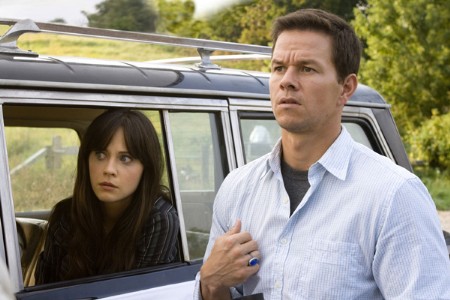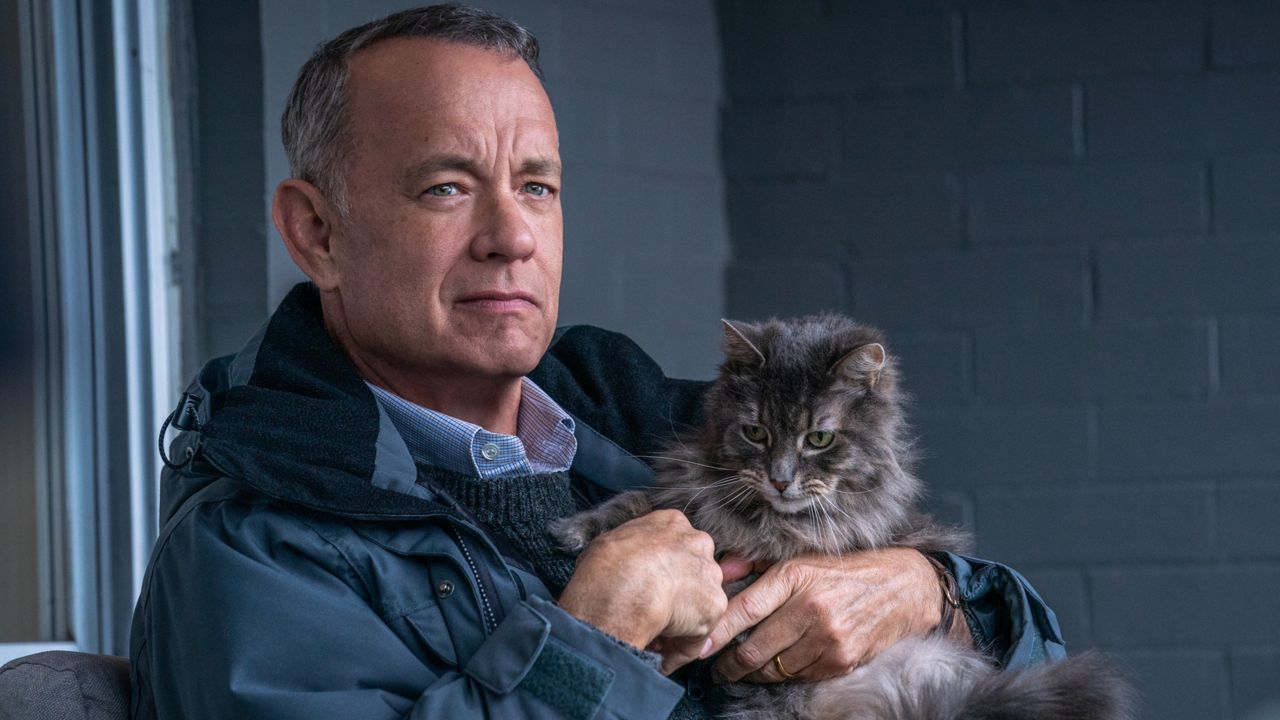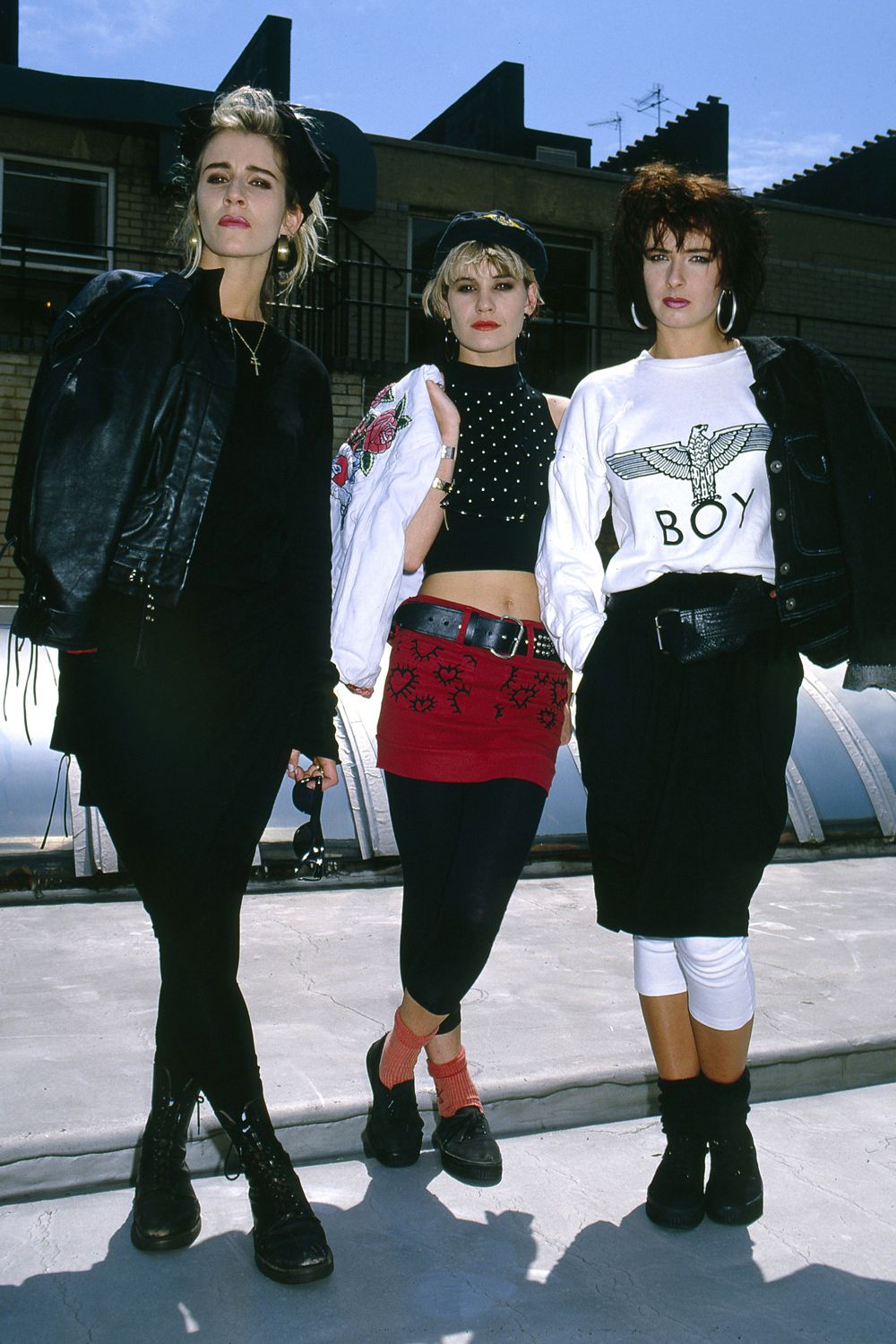
Alright, listen up, because we’re about to take a deep dive into the ’80s – a decade that was so much more than just big hair and neon leg warmers. It was a time of seismic shifts, from the geopolitical chessboard to our living rooms, and honestly, it was an absolute goldmine for the kind of quirky, off-beat comedies that might have slipped through the cracks of collective memory. We’re talking about movies that, in hindsight, perfectly captured the era’s unique blend of earnestness, awkwardness, and utterly bizarre circumstances. While the blockbusters and cult classics often steal the spotlight, imagine the hidden gems that might have used the decade’s wild backdrop for truly memorable (or hilariously forgettable) laughs!
Before the internet made everything instantly searchable and every trend exhaustively documented, countless films had their moment in the sun, then faded into the VHS ether. The ’80s provided an endlessly fascinating canvas for storytelling, ripe with both dramatic tension and laugh-out-loud absurdity. From the rapid explosion of personal technology to the ever-present shadow (and eventual thawing) of the Cold War, life in the Eighties often felt like a series of unexpected plot twists, begging to be immortalized on film with a comedic twist. It’s high time we appreciated these unsung comedic muses from a decade that just kept on giving.
So, buckle up, buttercups, because we’re going on a totally tubular journey to revisit 15 incredible facets of the 1980s. Each of these unique elements didn’t just define the decade; they were practically begging for a comedy movie to be made about them – a film so perfectly ’80s, it might have been impossible for it to resonate beyond its immediate cultural moment, thus becoming a glorious, forgotten treasure. Let’s unearth the comedic genius hiding in plain sight, proving that sometimes, the best jokes are found in the weirdest corners of history!

1. **The Exploding World of Home Computers: A Geek’s Paradise (or Panic Room)**The 1980s truly threw open the doors to a digital revolution, bringing computing power out of government labs and into the hands of everyday people. Suddenly, “home computers became commonplace,” as the context so aptly puts it. It started with the 1981 IBM PC, which quickly became the benchmark, leading to a massive market for compatibles. Think of the comedic potential here: families grappling with their first clunky PC, a bewildered dad trying to figure out DOS commands, or a tech-savvy teenager becoming the unwitting hero (or villain) of their neighborhood thanks to their newfound digital prowess. The sheer novelty of it all must have been endlessly funny.
Then came 1984, and with it, the Macintosh, which famously “popularized the WIMP style of interaction” – that’s Windows, Icons, Menus, Pointer, for those not fluent in ’80s tech-speak! This meant a whole new learning curve for everyone, a fertile ground for comedic misunderstandings and disastrous tech support calls. Imagine a ‘forgotten’ comedy movie centered around a small business trying to modernize with these newfangled graphical interfaces, leading to hilarious office mishaps and a desperate scramble to meet deadlines while battling a constantly crashing system. The contrast between the sleek promise of technology and the clunky reality was prime for laughs.
Beyond the hardware, the very idea of owning a computer was mind-boggling for many. It wasn’t just a tool; it was a status symbol, a gateway to unknown possibilities, and a source of endless frustration. A comedy could easily follow a character who wildly overestimates their computer skills, leading to a series of escalating blunders, perhaps accidentally hacking into a local bakery’s recipe database instead of the Pentagon. The nascent computer literacy of the public, combined with the groundbreaking (but often temperamental) technology, made for a perfect comedic storm. These early digital adventures were ripe for a quirky, overlooked film about the human element struggling with silicon.

2. **The Glorious and Chaotic Reign of Video Games: Pixels, Power-Ups, and Parental Puzzles**Before mobile gaming dominated our lives, the ’80s was the golden age of arcade and console gaming, a phenomenon that screams for a satirical comedy. The Atari Video Computer System console, affectionately known simply as “Atari,” became a household staple in the early part of the decade. This was where many of us first encountered digital entertainment, often with controllers that were more like joysticks of dubious precision. The context reminds us that its port of Space Invaders was its “first killer app,” sparking a nationwide obsession with high scores and pixelated aliens. Imagine a comedy film about a family whose lives are turned upside down by their Atari, with competitive siblings, bewildered parents, and perhaps a neighborhood tournament that goes hilariously awry.
Then, the infamous “video game crash of 1983” hit, putting a dramatic (and momentarily tragic) pause on console popularity and decimating the industry. But like a phoenix from the ashes, the Nintendo Entertainment System (NES) swooped in to “re-establish the console market in North America,” bringing with it iconic characters and groundbreaking gameplay. This boom-and-bust cycle, followed by an even bigger boom, is tailor-made for a comedy about an underdog game developer, or a group of kids navigating the emotional roller coaster of their favorite pastime. The intensity of kids (and adults!) huddled around a TV, controller in hand, screaming at a screen, must have been pure comedic gold.
And let’s not forget the sheer cultural impact of these digital heroes. The handheld Game Boy launched in 1989, just in time to cap off the decade, offering portable pixelated fun. Meanwhile, Super Mario Bros. and Tetris became the “decade’s best selling games,” with Pac-Man reigning as the “highest grossing arcade game.” These names are legendary now, but back then, they were fresh, exciting, and sometimes, a little silly. A forgotten comedy could have explored the fervent fandom, the moral panic around “addictive” games, or the absurd lengths people went to achieve a new high score. The collision of rapidly advancing tech and deeply human, often goofy, reactions makes this an ideal setting for a quirky ’80s film.
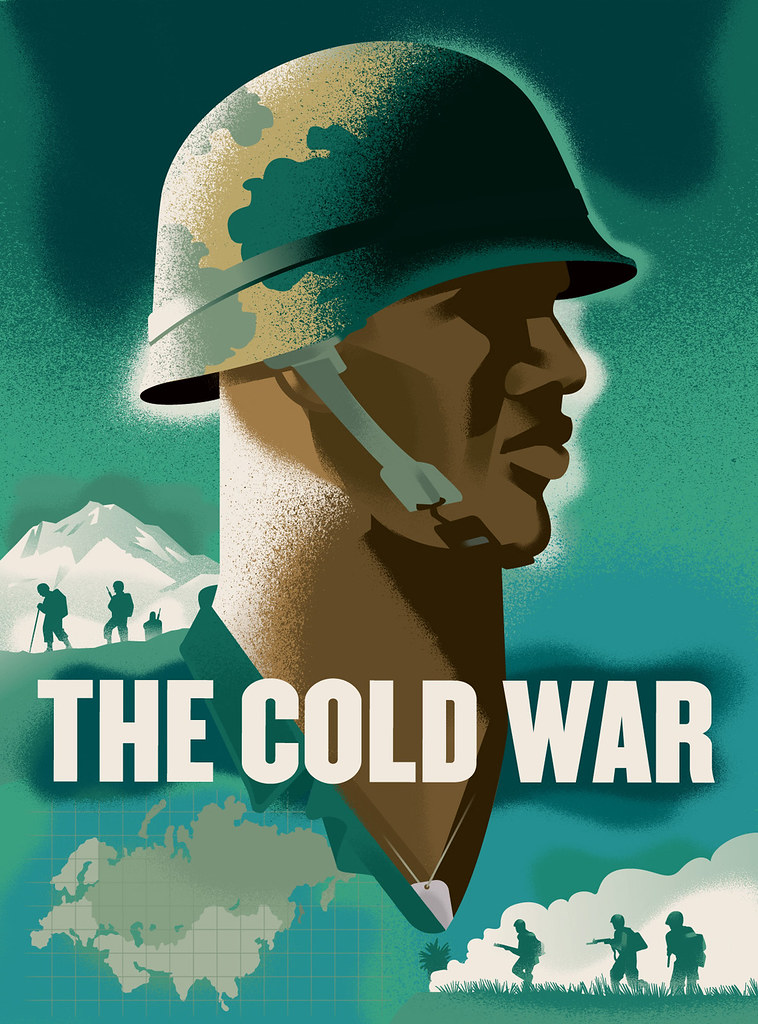
3. **Cold War Comedy: When Tensions Eased (Sort Of)**The 1980s began under the chilling shadow of the Cold War, a period where “the US-Soviet confrontation continuing largely without any interruption.” The context vividly describes how “superpower tensions escalated rapidly as President Reagan scrapped the policy of détente and adopted a new, much more aggressive stance on the Soviet Union.” This led to a world “perilously close to nuclear war,” a terrifying thought, but one that also, paradoxically, provided a ripe setting for dark comedies and satirical takes on international relations. Think ’80s films that poked fun at spies, double agents, and the sheer absurdity of global political brinkmanship.
However, the decade was also a fascinating arc towards an unexpected thaw. The “second half of the decade saw a dramatic easing of superpower tensions and ultimately the total collapse of Soviet communism.” This transition from intense hostility to a surprising handshake between Reagan and Gorbachev is a perfect narrative for a comedy. Imagine a film where two low-level operatives, one American and one Soviet, are so steeped in the old ways of suspicion and sabotage that they completely miss the memo about warming relations, leading to hilarious attempts to undermine each other while their superiors are busy signing peace treaties. The generational clash between hardliners and reformers, too, offers comedic opportunities.
The context even mentions Mikhail Gorbachev’s reforms of “glasnost and perestroika,” which “reduced Communist Party power, legalized dissent and sanctioned limited forms of capitalism.” This radical shift from a rigid, closed society to one tentatively embracing openness would have been a comedic goldmine. A ‘forgotten’ movie could have followed a group of everyday citizens in the Eastern Bloc suddenly navigating the bewildering world of limited capitalism, perhaps attempting to open the first truly ‘private’ business with predictably chaotic results. The cultural clashes, the misunderstandings, and the sheer awkwardness of such a profound societal change were tailor-made for a comedy that would have perfectly encapsulated the spirit of that evolving time.

4. **The “Just Say No” Era and the War on Drugs: A Moral Maze of Mayhem**The 1980s were a fascinating time for social policy, and few initiatives were as prominent as the War on Drugs, led by the iconic “Just Say No” campaign of First Lady Nancy Reagan. The context details how “the Reagan Administration accelerated the War on Drugs, publicized through anti-drug campaigns.” This ubiquitous presence in public discourse created a unique cultural backdrop, one that’s ripe for comedic exploration through the lens of a ‘forgotten’ film. Imagine a small-town comedy where the entire community is swept up in a misguided “Just Say No” fervor, leading to absurd scenarios where even sugary sodas are viewed with suspicion, and the local PTA becomes an elite anti-drug task force with hilarious incompetence.
While the campaign was earnest, the reality of drug use in the ’80s offered a different, more complex picture. The context notes that “drugs gained attention in the US as a serious problem in the ’80s,” with “cocaine relatively popular among celebrities and affluent youth,” and “crack, a cheaper offshoot of the drug, was linked to high crime rates in inner cities.” This dichotomy between the public-facing campaign and the underlying social issues could be the foundation of a very clever, if somewhat dark, comedy. A film could satirize the disconnect, perhaps following a well-meaning but utterly naive “Just Say No” advocate accidentally stumbling into the glamorous (and illicit) world of celebrity parties, completely out of their depth.
The moral panic and societal shifts surrounding drug use were profound, creating an environment where a comedy could play on the exaggerated fears and the earnest (but often clumsy) attempts to combat the problem. A forgotten ’80s comedy might feature a group of unlikely characters, perhaps teenagers trying to navigate peer pressure in an era of heightened anti-drug messaging, leading to a series of awkward encounters and well-intentioned blunders. The ’80s certainly had its share of teen comedies, and this specific social context could have given rise to a unique, perhaps even subversive, entry in the genre, now waiting for rediscovery as a hilarious time capsule.

5. **Early Internet Awkwardness: Dial-Up Days and Digital Dreams**Before Wi-Fi and smartphones, the internet was a nascent, clunky beast, mostly confined to academic circles, but its emergence in the ’80s provided a truly unique (and often frustrating) experience that was prime for comedic storytelling. The context tells us that “the global internet took shape in academia by the second half of the 1980s, as well as many other computer networks of both academic and commercial use such as USENET, Fidonet, and the bulletin board system.” For many, these terms might sound like ancient incantations, but they represented the cutting edge of digital communication.
Imagine a forgotten comedy where a group of enthusiasts, perhaps quirky university students or amateur hackers, are obsessed with these early networks. Their misadventures could involve agonizingly slow dial-up connections, trying to download a single image that takes hours, or navigating cryptic text-based interfaces. The limited access and specialized knowledge required for these systems would make for a hilarious narrative about an outsider trying to understand this new world. Picture a character accidentally posting a deeply personal message to a public USENET forum, believing it to be a private email, leading to widespread (and embarrassing) online fame.
By 1989, the context notes, “the Internet and the networks linked to it were a global system with extensive transoceanic satellite links and nodes in most developed countries,” and Tim Berners-Lee was busy formalizing “the concept of the World Wide Web.” This period of rapid evolution, where the rules were still being written and the potential was barely understood, was fertile ground for comedic misunderstandings. A film could explore the early adopters, the digital pioneers trying to explain the magic of email or online forums to skeptical friends and family, resulting in comical generational clashes. The early internet wasn’t just a technological marvel; it was a breeding ground for social awkwardness and uncharted digital territory, making it a perfect setting for a now-forgotten comedic gem.
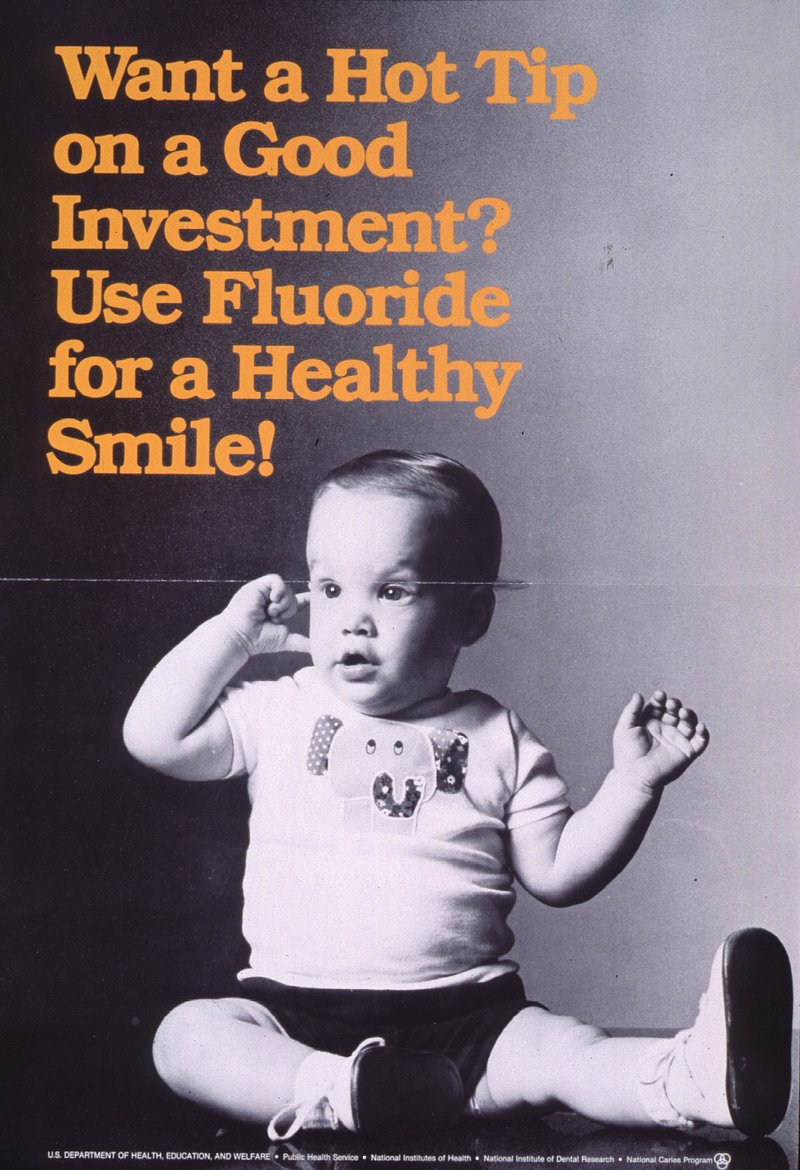
6. **Designer Babies & Genetic Frontiers: What Could Go Wrong?**The 1980s weren’t just about big hair and flashy cars; they were also a decade of profound scientific breakthroughs, particularly in genetics, that opened up both incredible possibilities and a world of ethical (and comedic) dilemmas. The context highlights that “the 1980s saw great advances in genetic and digital technology.” This rapidly evolving field, far from being purely serious, had elements that could easily inspire a truly wild and memorable comedy, perhaps one that was too ahead of its time to be fully appreciated.
Consider the groundbreaking (and slightly unnerving) advancements detailed: “After years of animal experimentation since 1985, the first genetic modification of 10 adult human beings took place in May 1989, a gene tagging experiment which led to the first true gene therapy implementation in September 1990.” And then, the real head-spinner: “The first ‘designer babies,’ a pair of female twins, were created in a laboratory in late 1989 and born in July 1990 after being sex-selected via the controversial assisted reproductive technology procedure preimplantation genetic diagnosis.” Imagine a comedy centered around this! A hapless couple accidentally ordering the wrong ‘designer baby’ traits, or a group of scientists trying to secretly undo a genetic ‘enhancement’ gone wrong.
Furthermore, “Gestational surrogacy was first performed in 1985 with the first birth in 1986, making it possible for a woman to become a biological mother without experiencing pregnancy for the first time in history.” This revolutionary concept, while serious, also has inherent dramatic and comedic possibilities. A ‘forgotten’ film could have explored the social anxieties and humorous misunderstandings surrounding these new reproductive technologies. The juxtaposition of ordinary people navigating extraordinary scientific advancements would provide endless material for a comedy that was perhaps too quirky or too prescient for mainstream ’80s audiences, now waiting for its cult following.

7. **The Space Shuttle Spectacle: Beyond the Launchpad**The 1980s ushered in a new era of space exploration with the majestic (and sometimes tragic) Space Shuttle program, offering a compelling backdrop for both awe and, yes, comedy. The decade began with a bang, literally, as “the first Space Shuttle, Columbia, lifts off in 1981.” This wasn’t just another rocket; it was a reusable winged orbiter, a symbol of American innovation and a source of national pride. Picture a forgotten comedy where an ordinary citizen, perhaps a janitor or a slightly eccentric engineer, accidentally gets launched into space on a maintenance mission gone wrong, leading to hilarious zero-gravity mishaps and unexpected encounters.
Beyond the initial glory, the program also faced immense challenges and public scrutiny. And tragically, the context reminds us of the “NASA Space Shuttle Challenger disintegrated 73 seconds after launch, killing all of the crew on board.” While deeply somber, the sheer human element involved in such high-stakes endeavors—the meticulous training, the quirky personalities of astronauts, the frantic ground control—could inspire comedies that focus on the lighter side of life in and around the space program, perhaps before tragedy struck. A ‘forgotten’ film might have explored the daily lives of the lesser-known personnel at Cape Canaveral, showcasing their quirky routines, bureaucratic battles, and unexpected friendships.
Consider the public’s fascination with space travel and the larger-than-life image of astronauts. A comedy could have played on the gap between the heroic ideal and the mundane reality of space logistics. Perhaps a team of aspiring astronauts, deeply competitive and prone to comical rivalries, are forced to work together on a seemingly insignificant mission that somehow saves the day, all while dealing with their own petty squabbles. The ’80s were a time when space was still a grand frontier, and a comedy that blended that ambition with relatable human foibles would have been a truly unique (and perhaps overlooked) cinematic experience. The drama of the unknown, coupled with human error, always makes for a potent comedic cocktail.
Okay, so we’ve already taken a trip down memory lane and unearthed some truly wild ’80s moments that were practically screaming for a comedy movie. But trust us, the ’80s were the gift that kept on giving, serving up even more global and societal shifts that, through a humorous lens, reveal themselves as prime material for the kind of obscure comedies that only true connoisseurs remember (or wish they did!). Get ready, because we’re diving back into the glorious absurdity of the Eighties to find eight more forgotten film concepts that are just waiting for their moment in the sun – or the VCR glow. These are the narratives that truly captured the decade’s vibe, even if the movies themselves never quite made it to your local Blockbuster’s “New Releases” shelf. Let’s keep this totally tubular adventure going!

8. **Live Aid and Celebrity Activism: Rocking for a Cause (or Just Rocking)**The mid-1980s saw the birth of a new kind of global phenomenon: the mega-charity concert. Who could forget Live Aid in 1985? This colossal event was held “in order to fund relief efforts for the famine in Ethiopia.” It was a moment when the biggest music stars on the planet came together, all in the name of a good cause. Imagine a ‘forgotten’ comedy movie satirizing the sheer chaos of organizing such an epic, transcontinental event, perhaps from the perspective of a hapless, overworked stage manager trying to wrangle dozens of ego-driven rock stars and a mountain of technical difficulties, all while battling a ticking clock and impossible expectations.
Think about the juxtaposition of earnest humanitarianism with the often absurd excesses of the music industry. A comedy could have hilariously explored the clash of cultures, like a punk rock band accidentally sharing a dressing room with a pop diva, or a band known for its debauchery suddenly trying to project an image of saintliness for the cameras. The film could poke fun at the logistical nightmares, the well-meaning but often naive celebrity pronouncements, and the underlying commercialism of a concert ostensibly focused on charity. It’s a goldmine for an ensemble comedy about good intentions meeting hilarious incompetence on a global stage.
Such a film could even delve into the broader cultural impact. How did these huge charity events actually change public perception, or did they simply provide a feel-good spectacle? A quirky, overlooked ’80s comedy might follow a cynical journalist attempting to expose the underlying phoniness, only to find themselves inadvertently caught up in the genuine spirit of giving – or, more likely, in a series of comical mishaps involving spilled backstage catering and missed flight connections. The earnestness of the era, coupled with its inherent self-absorption, would have made for a truly unique and memorable comedic take on the biggest concert event of the decade.
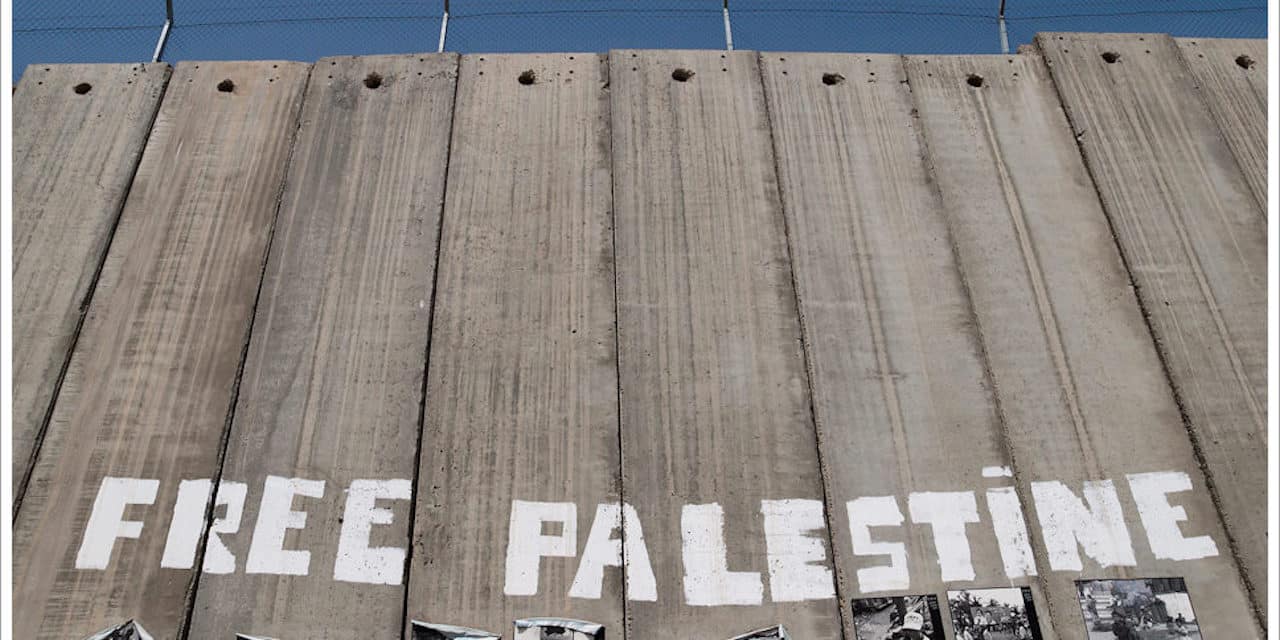
9. **The Chernobyl Disaster’s Quirky Aftermath: Nuclear Neighbors, Unlikely Heroes**While undoubtedly a tragic event, the 1986 Chernobyl disaster, which saw a “large-scale nuclear meltdown in the Ukrainian SSR, Soviet Union,” also presented a unique and dark comedic backdrop for a certain kind of ’80s film. We’re not talking about making light of the tragedy itself, but rather exploring the utterly bizarre human reactions, the bureaucratic blunders, and the unexpected community spirit that might arise in the face of an invisible, world-changing threat. Picture a ‘forgotten’ comedy that follows a group of small-town citizens, perhaps in a fictionalized border region, as they grapple with the concept of widespread “radioactive debris across Europe.”
Imagine a film where ordinary people suddenly become accidental experts in Geiger counters, or where a local eccentric builds an elaborate, comically ineffective radiation shield for their home. The sheer absurdity of trying to “doom countless others to future radiation-related cancer” while trying to live a normal life could be explored with dry wit and satirical humor. The context mentions “the displacement of 300,000 people,” which could inspire a comedy about a mismatched group of evacuees forced to cohabitate, leading to hilarious culture clashes and a desperate attempt to find normalcy in an abnormal world.
This isn’t about disrespect; it’s about the very human, often illogical, ways we cope with the unthinkable. A forgotten ’80s film might have focused on the attempts to contain the invisible enemy, perhaps through the eyes of a bumbling team of scientists or military personnel trying to implement absurd safety measures. Or perhaps a comedy about black market entrepreneurs trying to sell “radiation-proof” borscht. The unique blend of Cold War paranoia and a very real, very modern threat would have made for a poignant, yet unexpectedly funny, film that captured the anxieties and absurdities of a pivotal moment in global history.

10. **The Fall of the Berlin Wall: East Meets West with a Giggle**The year 1989 delivered one of the most iconic moments of the decade, if not the century: “The fall of the Berlin Wall.” This wasn’t just a political event; it was a cultural earthquake, a moment of pure, unadulterated human emotion and, crucially, a comedic goldmine. Imagine a ‘forgotten’ ’80s comedy movie set right in the thick of it, exploring the immediate aftermath as East and West Germans, separated for decades, suddenly collide with often hilarious results. Think of the culture shock, the misunderstandings, and the sheer joy mixed with bureaucratic chaos.
Consider a film where an East German family, accustomed to scarcity and state control, suddenly navigates the bewildering abundance of West German supermarkets, leading to comical overspending and befuddled attempts to understand market economics. Or a West German businessman trying to capitalize on the new open market, only to be met with the equally bewildering realities of post-communist infrastructure and mindset. The context highlights that “1989 brought the overthrow and attempted overthrow of a number of communist-led governments,” and the Berlin Wall’s collapse “signaled a seismic geopolitical shift,” which is prime for an ensemble comedy about ordinary people caught in extraordinary times.
Such a comedy could cleverly play on the subtle differences in fashion, slang, and consumer habits that developed over forty years of division. A romantic comedy could even blossom across the newly opened border, with two people from vastly different worlds trying to connect amidst the joyous pandemonium. A forgotten ’80s movie about the fall of the Berlin Wall wouldn’t just be a historical record; it would be a vibrant, humorous testament to human resilience, adaptability, and the universal comedy found when rigid systems suddenly give way to joyous, messy freedom. It’s a fish-out-of-water story on a national scale, begging for a laugh track.

11. **Democracy Blooms in Latin America: New Freedoms, New Fiascos**The 1980s were a transformative period for many nations, especially in Latin America, where “military dictatorships give way to democracy in Argentina (1983), Uruguay (1984–85), Brazil (1985–1988) and Chile (1988–89).” This dramatic shift from authoritarian rule to newfound freedom provides an incredibly rich, often absurd, setting for a comedy film. Imagine a ‘forgotten’ movie that chronicles the hilarious growing pains of a nation suddenly attempting to embrace democratic processes after decades of control. It’s a perfect setup for political satire, bureaucratic blunders, and the sheer enthusiasm (and confusion) of a populace rediscovering its voice.
Think about the characters: a former dictator struggling to adjust to civilian life, perhaps trying to open a small business with predictably disastrous results, or a group of newly elected, utterly inexperienced politicians trying to run a country with nothing but good intentions and a complete lack of know-how. The context notes that this marked “the end of the Operation Condor for 30 years,” signifying a massive change. A comedy could explore the comical challenges of setting up free elections, where an eager but naive international observer team faces off against entrenched local customs and surprisingly resilient bureaucratic red tape.
A film from this era might have poked fun at the earnest but often clumsy attempts to establish new societal norms, like a local town attempting to host its first-ever free and open public debate, devolving into hilarious chaos. Or perhaps a comedy about everyday citizens suddenly grappling with the responsibilities and complexities of civic engagement, leading to a series of escalating misunderstandings and community projects gone wildly awry. The birth of democracy, with all its inherent messiness and human foibles, is a truly compelling backdrop for a forgotten ’80s comedy, celebrating the spirit of freedom with a hearty laugh.

12. **The PATCO Strike: Air Traffic Control, But Make It Funny**Remember the Professional Air Traffic Controllers Organization (PATCO) strike of 1981? While a serious labor dispute, the event itself, with its mass firings and nationwide disruption, screams workplace comedy gold. The context explicitly states that “Ronald Reagan fired over 11,000 striking air traffic controllers who had ignored his order to return to work, banning them from federal service for life.” This dramatic executive action, coupled with the vital role of air traffic control, could be the perfect premise for a ‘forgotten’ ’80s film that blends bureaucratic satire with a touch of everyman heroism.
Picture a comedy centered around a small, quirky team of air traffic controllers who, due to some hilarious misunderstanding or bureaucratic oversight, manage to avoid the mass firing. Now, they’re suddenly responsible for an entire region’s airspace, hilariously out of their depth, trying to manage thousands of flights with limited resources and an ever-present sense of impending doom. The film could play on the chaos of the “considerable disruption of the US air transportation system” with an exaggerated, comedic flair, like planes circling for hours while the remaining controllers resort to increasingly unconventional methods to land them.
This would be a classic underdog story, a group of unlikely heroes (or anti-heroes) scrambling to keep the skies safe while navigating petty squabbles, personal dramas, and the constant threat of being discovered. The ’80s were ripe with films about characters battling the system, and a comedy about the PATCO strike could have been a brilliant, albeit niche, entry into that genre. It’s a high-stakes, high-stress environment made utterly farcical by human error and presidential decree, making it ripe for a lost comedic gem about the unsung (and suddenly unemployed) heroes of the sky.

13. **The Seoul Olympics 1988: Global Games, Local Gaffes**The 1988 Summer Olympics, hosted in South Korea, was a magnificent spectacle of international unity and athletic prowess. But beyond the medals and ceremonies, any massive international event is a hotbed for humorous mishaps, cultural misunderstandings, and bureaucratic blunders. Imagine a ‘forgotten’ ’80s comedy movie that takes us behind the scenes of the “first time the country hosted them,” perhaps following a group of earnest but utterly overwhelmed local organizing committee members trying to pull off the biggest event of their lives. It’s a prime setup for an ensemble comedy that blends international flavors with distinctly local charm and chaos.
Think of the comedic potential in cultural clashes: a visiting athlete from a obscure nation trying to understand local customs, or a strict, by-the-book Korean official trying to manage the flamboyant demands of international superstars. The context mentions “Roh pursued a policy of normalizing relations with China and the Soviet Union,” hinting at the complex political backdrop. A film could satirize the delicate diplomacy required, with a bumbling ambassador trying to smooth over an international incident caused by a misplaced mascot or a national flag accidentally hoisted upside down.
Such a comedy could also highlight the universal human element of the Games: the eccentric athletes, the overly zealous fans, and the tireless volunteers. A forgotten ’80s film could have followed a group of unlikely Olympic hopefuls, perhaps a synchronized swimming team from a landlocked country, or a marathon runner who gets hilariously lost in the unfamiliar city, all while the world watches. The Seoul Olympics, a symbol of national pride and global community, provided an incredible tapestry for a witty, heartwarming, and utterly ’80s comedy about the beautiful absurdity of bringing the world together.

14. **Canadian Independence & Commonwealth Shenanigans: Officially Unofficial**While the United States was busy with flashier independence movements, the ’80s saw a more subtle, yet equally significant, shift in the Commonwealth realms. “In 1982, Canada gained official independence from the United Kingdom with the Canada Act 1982,” followed by “Australia Act 1986” and “New Zealand’s full independence with the Constitution Act 1986.” This unique form of independence, where the Queen remained head of state but British parliamentary powers were severed, is a brilliant setup for a dry, bureaucratic, and delightfully understated comedy film. Imagine a ‘forgotten’ ’80s movie exploring the polite, often awkward, process of severing the last vestiges of colonial ties.
Picture a film where a small, dedicated team of Canadian bureaucrats is tasked with meticulously going through every law and document to ensure absolute independence, leading to hilariously pedantic arguments over comma placement and historical footnotes. The context states that the Canada Act “severed all political dependencies of the United Kingdom in Canada,” which sounds like a glorious pile of paperwork. A comedy could highlight the subtle cultural differences and the underlying affection (and exasperation) between the former motherland and its increasingly independent offspring, perhaps through a series of formal, yet utterly farcical, diplomatic meetings.
Such a forgotten ’80s film might focus on the human element: the bewildered citizens trying to understand what “full independence” actually means when the Queen is still on their money, or a group of nationalistic civil servants trying to throw a truly epic independence celebration that gets bogged down in provincial rivalries. It’s a comedy of manners, a satire of quiet revolution, and a charming exploration of national identity in a way that only Canada, Australia, or New Zealand could deliver. The subtle comedy of polite separation, devoid of grand fireworks but full of bureaucratic quirks, is a truly unique premise for a forgotten gem.

15. **The Rise of Cable TV & VCRs: Channel Surfing Chaos**Alright, let’s wrap this up with something that truly defined the ’80s home experience: the explosion of cable television and the trusty VCR. While not explicitly detailed as a comedy prompt, the context hints at the broader cultural impact with “Television viewing became commonplace in the Third World, with the number of TV sets in China and India increasing by 15 and 10 times respectively.” This expansion of viewing options in the developed world was equally profound, creating a landscape ripe for domestic comedy. Imagine a ‘forgotten’ ’80s movie centered around a family utterly overwhelmed by the newfound power of choice and the bewildering array of new channels and recording options.
Think about the patriarch of the family, perhaps a dad who insists on meticulously programming the VCR, only to constantly fail and record over important family events, leading to uproarious arguments and missed moments. The proliferation of new content, from obscure niche channels to round-the-clock music videos, could provide endless comedic scenarios – like a family member accidentally stumbling upon an infomercial marathon at 3 AM and getting sucked into a hilarious purchasing spree. It’s a simple premise, but deeply relatable for anyone who grew up with this technological shift.
A film from this era could have satirized the very idea of “more choices” leading to “more confusion” and familial friction. Perhaps a family becomes obsessed with a specific, ridiculously low-budget cable show, leading to a cult following within their living room. Or a group of teenagers tries to secretly record R-rated movies on the VCR, only to be constantly thwarted by their parents. The rise of cable and VCRs wasn’t just a technological advancement; it was a cultural revolution in every living room, making it a perfect, nostalgic, and utterly hilarious setting for a forgotten ’80s comedy about the joyous, chaotic dawn of endless entertainment options. It’s a love letter to the awkward early days of home media.
And there you have it, folks! Another deep dive into the ’80s archives, proving once again that this iconic decade was so much more than just a fleeting trend. It was a wellspring of truly unique, often bizarre, and always hilarious moments that were practically begging to be immortalized on film. From the seismic shifts in global politics to the humble, clunky technologies that changed our living rooms forever, the Eighties served up an endless buffet of human absurdity. These forgotten comedic concepts aren’t just blasts from the past; they’re a testament to an era where big ideas, big hair, and even bigger laughs were always just around the corner. So next time you’re feeling nostalgic, don’t just reach for the obvious classics. Think about the hidden gems, the ‘what-ifs,’ and the movies that might have captured the glorious, quirky spirit of the ’80s in ways we’ve all forgotten… until now!

